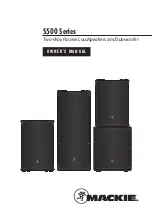
© 2016 Nelson Stud Welding, Inc.
Page 4
All Rights Reserved.
January 2016
Part No. 729-110-043 Rev. 1.02
ELECTRICALLY POWERED EQUIPMENT
Faulty or improperly electrified equipment can
cause injury or death. Therefore:
EYE PROTECTION
Flying metal can injure eyes. Welding, chipping,
wire brushing and grinding can cause sparks
and flying metal. As welds cool, they can throw
off slag. Therefore:
1.
Always have qualified personnel perform the installation,
troubleshooting, and maintenance work. Do not perform any
electrical work unless you are qualified to perform such work.
2.
Before performing any work inside a power source, disconnect the
power source from the incoming electrical power using the
disconnect switch at the fuse box before working on the
equipment.
3.
Install equipment in accordance with the U.S. National Electrical
Code, all local codes and the manufacture’s recommendations.
4.
Ground the equipment in accordance with the U.S. National
Electrical Code and the manufacturer’s recommendations.
1.
Wear approved safety glasses with side shields even under your
welding helmet.
2.
Warn others nearby about flying metal hazard.
EQUIPMENT MAINTENANCE
Faulty or improperly maintained equipment can
cause injury or death. Therefore:
CYLINDER HANDLING
Cylinders, if mishandled, can rupture and
violently release gas. Sudden rupture of
cylinder, valve, or relief device can injure or kill.
Therefore:
1.
Always have qualified personnel perform the installation,
troubleshooting, and maintenance work. Do not perform any
electrical work unless you are qualified to perform such work.
2.
Before performing any maintenance work inside a power source,
disconnect the power source from the incoming electrical power.
3.
Maintain cables, grounding wire, connections, power cord, and
power supply in safe working order. Do not operate any equipment
in faulty condition.
4.
Do not abuse any equipment or accessories. Keep equipment away
from:
heat sources such as furnaces
wet conditions such as water puddles and inclement weather
oil or grease
corrosive atmospheres
5.
Keep all safety devices and cabinet covers in position and in good
repair.
6.
Use equipment only for its intended purpose. Do not modify it in
any manner.
1.
Use the proper gas for the process and use the proper pressure
reducing regulator designed to operate from the compressed gas
cylinder. Do not use adaptors. Maintain hoses and fittings in good
condition.
2.
Always secure cylinders in an upright position by chain or strap to
suitable hand trucks, undercarriages, benches, walls, post, or
racks. Never secure cylinders to work tables or fixtures where they
may become part of an electrical circuit.
3.
When not in use, keep cylinder valves closed. Have valve
protection cap in place if regulator is not connected. Secure and
move cylinders by using suitable hand trucks. Avoid rough
handling of cylinders.
4.
Locate cylinders away from heat, sparks, and flames. Never strike
an arc on a cylinder.
5.
For additional information, refer to CGA Standard P-1, “Precautions
for Safe Handling of Compressed Gases in Cylinders”, which is
available from Compressed Gas Association, 1235 Jefferson Davis
Highway, Arlington, VA 22202.
ADDITIONAL SAFETY INFORMATION
For more information on safe practices for
electric arc welding, refer to the following
publications.
HEARING PROTECTION
Prolonged Noise from Capacitor Discharge
welding applications can damage hearing if
levels exceed limits specified by OSHA.
Therefore:
1.
ANSI/ASC Z49.1 Safety in Welding and Cutting
2.
AWS C5.1 Recommended Practices for Plasma Arc Welding
3.
AWS C5.6 Recommended Practices for Gas Metal Arc Welding
4.
AWS SP Safe Practices (Reprint) Welding Handbook
5.
ANSI/AWS F4.1 Recommended Safe Practices for Welding and
Cutting of Containers That Have Held
Hazardous Substances.
1.
Use Approved ear plugs or ear muffs if noise level is high.
2.
Warn others nearby about noise hazard.
3.
For additional information, refer to OSHA Safety Standards 3074.
MOVING PARTS CAN CAUSE INJURY
Electric fan can start at any time without
warning and cause severe injury, therefore:
1.
Always disconnect electrical power prior to service to prevent the
fan from starting unexpectedly.
2.
Keep all doors, panels, covers, and guards closed and securely in
place.
3.
Have only qualified people remove guards or covers for
maintenance and troubleshooting as necessary.
4.
Keep hands, hair, loose clothing, and tools away from moving
parts.
5.
Reinstall panels or guards and close doors when servicing is
finished and before reenergizing welder.





































